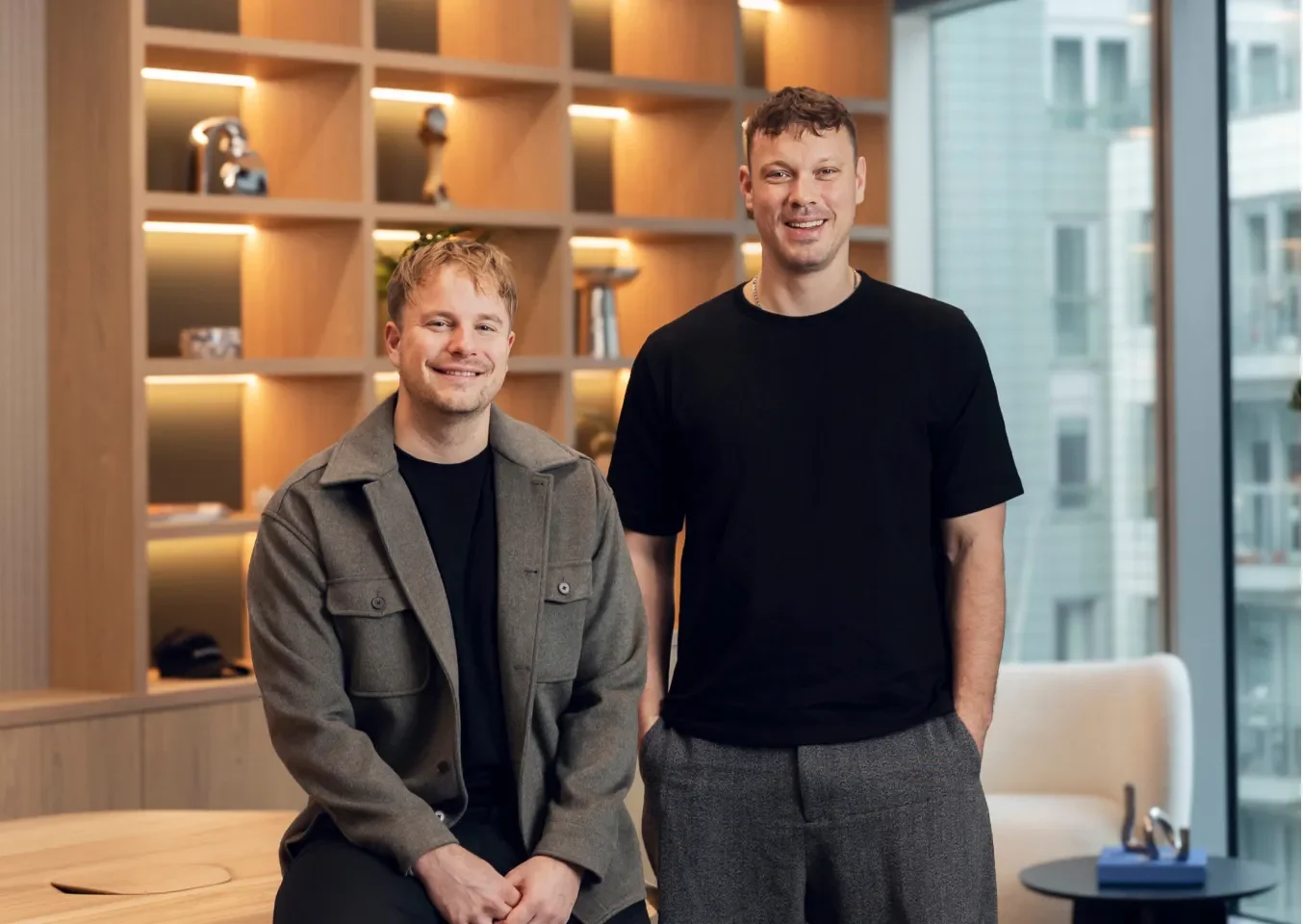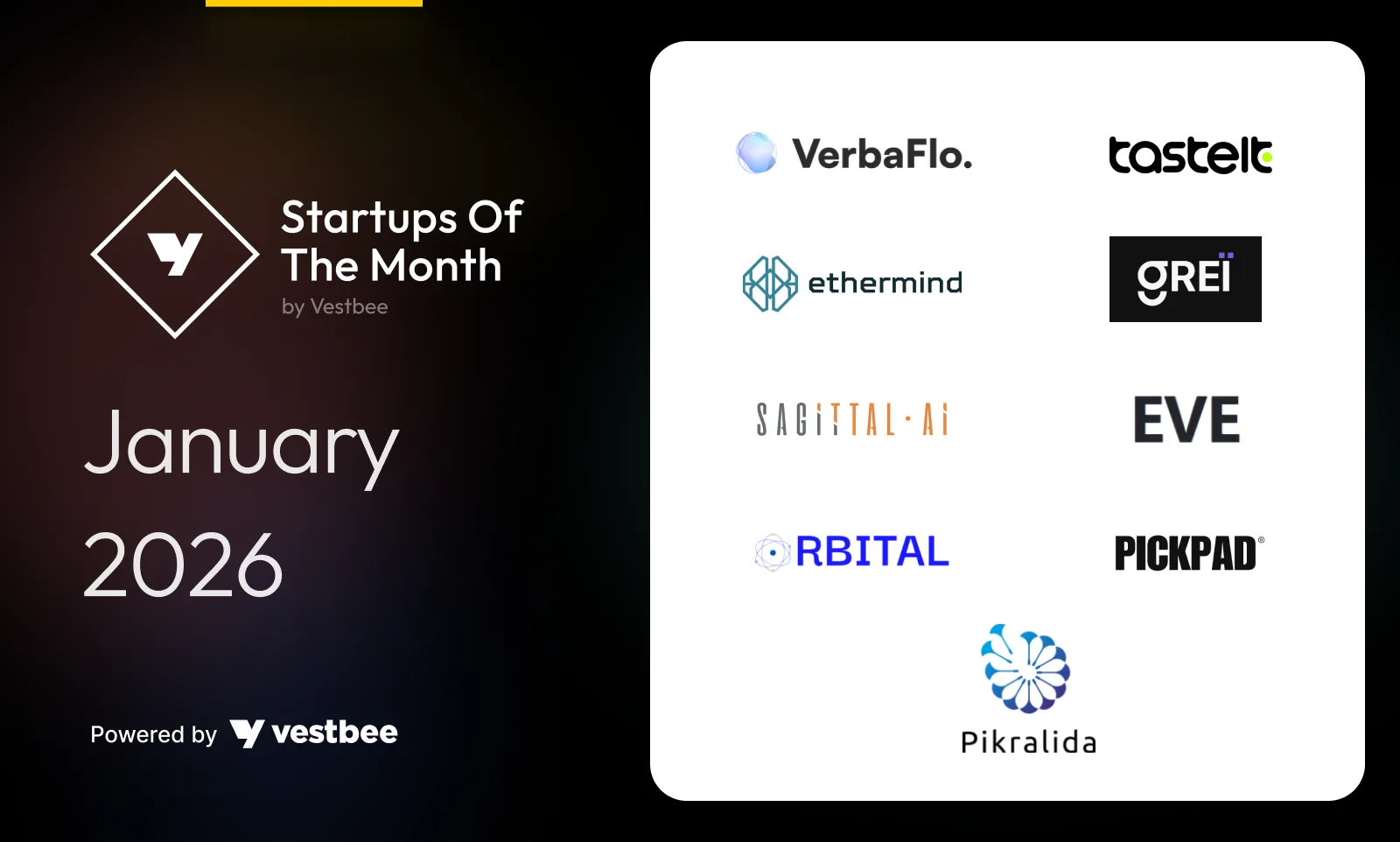In 2024, Radix Ventures, a new deeptech fund, made its mark on the Polish ecosystem’s map. In June, it announced a €41 million first close, with European Investment Fund (EIF) and PFR GreenHub as anchor investors. Evolving from ValueTech, Radix builds on the experience of its founders, Paweł Bochniarz, Wojciech Ratymirski, and Michał Urbanowski, who have been successfully investing in the CEE region since 2017.
Rebranded in January, Radix unveiled a fresh identity and a mission to empower radical innovators and bridge CEE late-stage funding gap. Vestbee spoke with the fund’s partners about their journey from ValueTech, fundraising challenges, and how public money plays a crucial role in supporting the growth of the region’s deeptech sector.
What led you to establish Radix Ventures?
Paweł Bochniarz: Radix Ventures continues the work we have been doing at ValueTech with Michał and Wojciech. This is our second fund, launched under a new brand for marketing and legal reasons. While ValueTech is registered in Poland and supervised by the Polish Financial Market Authority, we’ve moved the current fund’s domicile to Luxembourg.
Since 2017, our team has collaborated on 21 investments through ValueTech, including three follow-on rounds across 18 companies. It was a good proof-of-concept fund for us as a team and our investment thesis. Our first fund focused on energy transition and transforming traditional economic sectors and was limited to investments in Poland.
Wojciech Ratymirski: The idea for Radix evolved directly from our experiences at ValueTech, which offered a valuable opportunity to engage with the ecosystem, understand what works, and identify what does not. We also wanted to expand beyond Poland, allocate a significant part of the fund for follow-on investments, and move further into the startup growth stage.
ValueTech primarily invested in pre-seed businesses, but we noticed a huge gap in deeptech financing for later rounds, which many of our portfolio companies struggled with. Recognizing the market gap and opportunity and having a pretty good overview of the deeptech sector, we decided in 2020 to establish Radix as a larger fund. Today, we are fully operational.
Talking about this three- to four-year journey, what were the toughest moments, considering the challenges the region has faced in recent years?
W.R: The toughest one was fundraising. We started at a time that was probably the worst for fundraising due to the war, post-COVID turbulence, inflation, and high interest rates. We knew raising a €40-50 million fund in Poland would be hard if we only rely on our immediate network.
Our first goal was to attract the European Investment Fund as an anchor investor. We also needed to to structure the fund in a way that would be safe and recognizable for investors in Poland and internationally.
As we learned of the details of the Invest EU mandates that the EIF is managing, we had to slightly adapt our investment policy, emphasising the environmental aspect, which became even more important when we welcomed PFR Venture’s Green Hub on board. So, we did it, but without compromising our thesis — we are still a deeptech fund and stick to that focus. At the same time, we want our portfolio companies to contribute positively to the environment.
P.B: In parallel to fundraising, we were working towards exiting from and securing follow-on investments for ValueTech’s portfolio, which also was a challenge, as the exit environment wasn’t and still isn’t very conducive. However, a significant majority of our investees were able to raise follow-ons and continue to scale up.
We managed to make one significant exit at quite a nice multiplier with a company central to our thesis, Lerta, which focuses on providing software solutions for smart grid technology. We also managed to list another company — Noctiluca — on the Warsaw Stock Exchange and actually, just a couple of weeks ago it moved to the main market at a valuation which is significantly higher than the original one. These two achievements boosted our confidence and assured our future investors we know what we are doing.
Michał Urbanowski: Another challenge we had to face was establishing a new formal and legal structure for the fund in Luxembourg, including in particular finding a bank willing to open an account. The whole process turned out to be much longer than we initially thought.
Regarding fundraising, there is debate on whether VCs in CEE should wean themselves off public capital, especially given delays in EU funding in 2022-2023. What’s your opinion on this?
W.R: To be honest, right now, it's nearly impossible to launch a VC fund in Poland without public capital — aside from a few exceptions — since almost all funds with notable sizes are supported by public institutions like the EIF, IFC, or PFR. The situation is quite similar in other countries in the region, like Hungary and Romania. Poland's economy is still relatively young, and there is not much wealth built in Poland. Most of our high-net-worth individuals are relatively new to tech investments and are just starting to professionalize their asset management. Some family offices may emerge, but currently, VC is not a well-known asset class in Poland.
It will improve over time, for sure. But right now, if you want to attract private investors, having public investors on board also gives you much more credibility. It provides them with confidence that proper due diligence has been conducted and that the investment agreement or the fund is structured in the right way.
In the software sector, we see more and more fully private funds, but it's different in deeptech. Deeptech companies usually need a longer runway and have higher capital needs during the early stages of growth. Money tends to go where there is less risk and more predictable returns. So, investors are shifting towards software startups and likely towards AI startups right now. However, having public money on board for tech startups allows private investors to leverage the money and have a partner in that process.
It's great to see the Polish and Hungarian ecosystems having such opportunities. In Ukraine, where I’m from, we don't have a fund of funds like PFR. Our VCs need to rely on private money, which is now limited.
W.R: But it's not something new in the world. The PFR is learning and adapting similar structures earlier put into life in Great Britain or Germany. Also, in Israel, where the startup ecosystem is one of the most dynamic in the world, they facilitated its launch with public investments.
Having public money also allows us to boost sectors of the economy that might not attract private investors. Without programs like those from EIF, forcing fund managers to focus on certain areas, we wouldn't have had a chance to develop solutions in sectors like energy transition or new materials. I’m almost 100% sure that without that money, all the investments would go to AI, for example, right now.
And still, if we compare our investments in deeptech, even in Poland, to Samsung’s R&D budget, the public funding in Poland for deeptech investments is way smaller than Samsung’s annual R&D budget of €16 billion. So there is still plenty to do.
Radix's website mentions that CEE could become a deeptech hub but must address a late-stage financing gap. What factors make the region capable of becoming a hub?
P.B: CEE has a really strong talent pool in STEM. We are globally recognized for outstanding developers and software engineers. However, this is a much broader pool, and we could easily extend it to other engineering and research fields, such as physics, chemistry, or biology.
Another factor contributing to this is that, although we lack world-class universities in our region, individual researchers find it easier and easier to work in an international environment, conducting research in consortia that involve Western European, Asian, or American universities. Additionally, the career paths of researchers have changed significantly.
We meet many startups led by talented young researchers who completed their undergrad in the region and advanced their studies at top universities worldwide. This trend is growing, with a huge diaspora of students from across CEE now graduating from world-class universities and institutes. I expect a significant increase in deeptech startups co-founded by such people. As a matter of fact we are currently speaking with several such startups.
The third factor is the fairly modern research infrastructure in many parts of CEE, which is essential for top-tier science. Thanks to EU funding, some regional research institutes now have access to the same good equipment as their Western European counterparts. This disadvantage has largely disappeared. I recently visited Sofia Tech Park, which hosts one of Europe’s few pentascale supercomputers essential for startups which have needs for high performance computers. With this infrastructure, we will become more and more competitive.
What exactly is this gap in late-stage deeptech financing? Please tell me more about it.
P.B: Everybody recognizes the fact that if you compare VC funding per capita in the leading CEE and Western Europe, we are seeing a difference of an order of magnitude or more, with the notable exception of Estonia. However when you look specifically at deep tech funding the situation is more complicated. There is a significant amount of early-stage funding available for startups which includes not just seed and pre-seed funds across the region but also non-dilutive funding through various grant programs accessible at multiple levels. These programs are typically available at the regional, national, and even EU-wide levels, allowing early-stage deeptech startups to obtain funding.
Now, the typical challenge is that once you've exhausted the initial grant funding and perhaps received some money from business angels, it becomes more challenging to obtain further funding. We see this as another ‘death valley’ for deeptech startups, particularly in the late seed phase. Why? Because most of the funds in our region focus on pre-seed and seed stages.
On the other hand, VCs from Western Europe typically don't typically invest very early on outside their home markets. There are exceptions, but generally, when they look at a startup outside their home territory, they expect some traction and revenue, which a late-seed deeptech startup, still at the pre-revenue stage, is unlikely to have. This is where we see our sweet spot: when the first rounds of investment have already been spent, and some grants may have been used. At this point, we step in to bridge the gap between seed funding and the Series A round.
Radix plans to invest in 20 startups, right? With ticket sizes between one and two million. How does your selection process look? When are you going to make your first investment?
M.U: We are about to make our first two investments, probably within the next month or two. When evaluating potential investments, we focus on the team — both their experience and how complete the team is — as well as the scalability of the business, the business model, and the potential for exits. These are the most essential aspects of our analysis.
What is happening with the startups from your previous fund portfolio? Are they transitioning to Radix?
W.R: We are considering one or maybe two companies from the ValueTech portfolio that could be interesting investment targets for Radix. There is no general plan for moving the portfolio, as we want to avoid conflicts of interest. The principle is that we would not lead such a round.
ValueTech’s portfolio is doing well and we expect a very good performance of the fund overall. Apart from Lerta and Noctiluca, which we already mentioned, companies such as Nevomo, Hustro, Share.P and Perfect Data are growing fast. Of course, as in the VC industry, we also will have some write-offs.
Apart from financial support from Radix Ventures, what other benefits will the startups receive? Can you tell me more about the network of partnerships with leading regional research institutions, as mentioned on your website?
P.B: Working with deeptech startups involves several things. One of them is that we need to be able to look at the IP portfolio of a startup and advise them on how to manage it going forward. This is different from standard technology startups, where you typically only have code and possibly some trademarks. Here, we often deal with sophisticated IP, such as patents. One of the things we offer when speaking with startups is that we are a partner for managing their IP portfolio and, hopefully, helping to strengthen it. To this end, we can connect with patent attorneys from our network in Europe and internationally and help develop a robust IP strategy.
Another thing we have done in the past, also in our first fund, is connect startups from our region with third-party partners globally. This is sometimes necessary for external validation of technology or to bring in a more renowned partner than a local university to shine a spotlight on the technology. For example, for Noctiluca, a spin-off from Nicolaus Copernicus University in Toruń, we helped bridge the credibility gap. Targeting the display market in consumer electronics and automotive sectors, Noctiluca faced challenges in gaining credibility with major Asian players. To address this, we facilitated a partnership with Taiwan’s largest research institute, ITRI, guiding them through the process until they signed a cooperation agreement. This collaboration has helped Noctiluca introduce its technology to key industrial players in Taiwan.
This year we are adding to our team a US-based Venture Partner with an excellent network in the US VC, corporate and R&D world who will help our portfolio companies to successfully bridge to the American market.
That sounds impressive. What's next for Radix Ventures? What are your short and long-term goals?
P.B: Our top priority will be making the first investments, with plans to announce the first two within a month. Another key focus is continuing our fundraising efforts. We want to bring up the total cap of the fund to around €50-60 million, and we’ll be making announcements as we progress — we’re not stopping at €40 million. Additionally, we’ll be growing our team to be able to fully support our growing portfolio.







